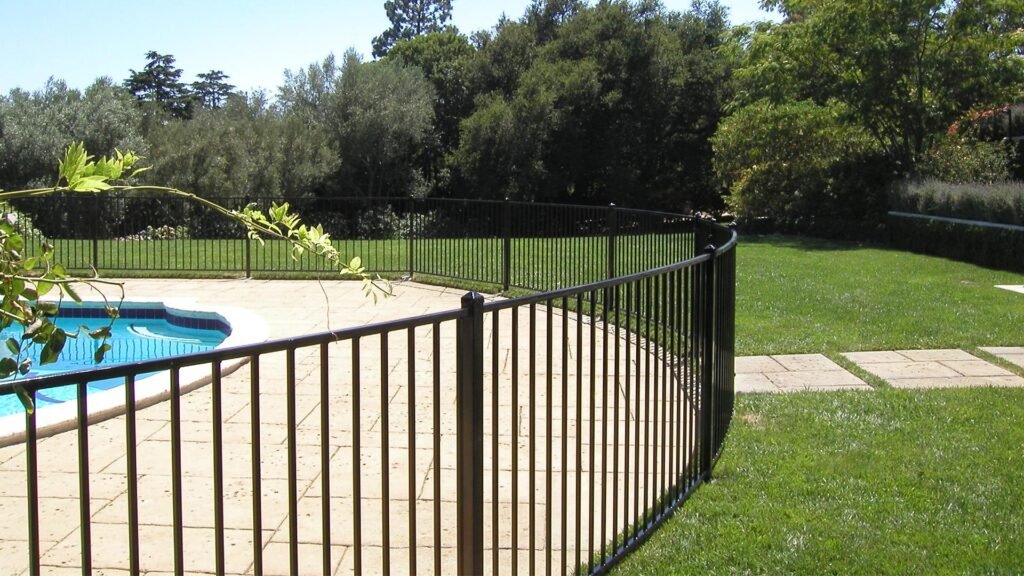Owning a pool in Los Angeles comes with the responsibility of ensuring safety, especially if children or pets are around. A well-chosen pool fence in Los Angeles adds a layer of protection and complements the aesthetics of your outdoor space. With various options available, selecting the right pool fence can be challenging.
Understanding the key factors to consider when choosing a pool fence in Los Angeles will help you make an informed decision that balances safety, style, and functionality.
Consider the Safety Requirements
Safety should be the top priority when choosing a pool fence in Los Angeles. The city has specific regulations regarding pool fencing to prevent accidental drownings. Ensure that the fence you select meets these safety standards, which include a minimum height, the distance between vertical bars, and a self-closing, self-latching gate. The fence should be climb-resistant and strong enough to withstand pressure. Additionally, consider a fence with a locking mechanism that is out of reach of small children to further enhance safety.
Evaluate the Material Options
The material of your pool fence plays a significant role in its durability, maintenance, and appearance. Common materials include aluminum, wrought iron, mesh, and glass. Aluminum is lightweight, rust-resistant, and easy to maintain, making it a popular choice for pool fencing. Wrought iron offers a classic look and is highly durable, though it may require more maintenance to prevent rust. Mesh fences are flexible and removable when not needed, while glass fences provide a modern, unobstructed view of the pool area. Choose a material that aligns with your preferences and the overall design of your outdoor space.
Balance Aesthetics with Functionality
While safety is crucial, you also want your pool fence to enhance the visual appeal of your backyard. The right pool fence in Los Angeles should blend seamlessly with your home’s architecture and landscape. Consider the color, design, and height of the fence to ensure it complements your pool area. A glass fence can create a sleek, modern look, while a wooden or wrought iron fence may add a more traditional or rustic charm. At the same time, ensure that the fence provides the functionality you need, such as visibility, ease of use, and low maintenance.
Get Professional Installation
Proper installation is critical to the effectiveness of your pool fence. Even the best fence will not serve its purpose if installed incorrectly. Hiring a professional installer ensures that your fence complies with local regulations and is securely positioned to prevent accidents. Professionals have the experience and tools needed to handle any challenges arising during installation. They can also guide the best placement and style for your specific pool area, ensuring that your fence meets safety standards and enhances the overall look of your backyard.
Conclusion
Choosing the right pool fence in Los Angeles requires careful consideration of safety, material, aesthetics, and professional installation. By prioritizing safety requirements, selecting the appropriate material, balancing aesthetics with functionality, and ensuring proper installation, you can create a secure and attractive pool area. A well-chosen pool fence will provide peace of mind, knowing that your loved ones are protected while enhancing the beauty of your outdoor space. Investing in a high-quality pool fence is a wise decision that benefits your home’s safety and overall appeal.
FAQ
1. What are the main types of pool fences?
The main types include mesh, aluminum, glass, vinyl, and wood. Each type has its own advantages in terms of aesthetics, durability, and safety.
2. What are the safety regulations for pool fences in Los Angeles?
In Los Angeles, pool fences must meet specific safety standards, including being at least 5 feet high and having self-closing, self-latching gates. It’s essential to check local codes for detailed requirements.
3. How do I determine the best material for my pool fence?
The best material depends on your budget, style preferences, and maintenance level. For example, glass offers a sleek look but may require more cleaning, while aluminum is durable and low-maintenance.
4. What height should my pool fence be?
The fence should be at least 5 feet tall to comply with safety regulations. This height helps prevent young children from easily climbing over the fence.
5. Can I install the pool fence myself?
Yes, you can install the pool fence yourself if you have the necessary tools and skills. However, hiring a professional can ensure proper installation and compliance with local regulations.
6. How do I choose the right gate for my pool fence?
Choose a gate that is self-closing and self-latching for added safety. Ensure it is also at least 5 feet high and that the latch is out of reach of children.
7. What is the cost of installing a pool fence?
The cost varies based on materials, size, and installation. On average, pool fence installation in Los Angeles can range from $1,500 to $4,000.
8. How do I maintain my pool fence?
Maintenance depends on the material. Generally, regular cleaning, checking for wear and tear, and ensuring gates function properly are essential for all types of pool fences.
9. Are there decorative options for pool fences?
Yes, many materials offer decorative options. For example, aluminum and vinyl can come in various colors and styles, while glass can provide a modern, unobstructed view of the pool area.
10. What factors should I consider when choosing a pool fence?
Consider safety, local regulations, your budget, maintenance needs, and aesthetics. Additionally, think about the age of children or pets that will be around the pool area when making your choice.




